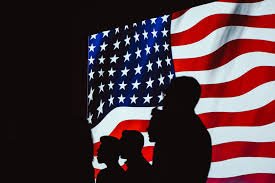The Significance of United States Independence Day
Independence Day, celebrated on July 4th, marks a pivotal moment in American history—the adoption of the Declaration of Independence in 1776. This day signifies the birth of the United States as an independent nation, free from British colonial rule. It is a day rich in historical importance and cultural significance, celebrated with patriotic fervor across the country.

Historical Context
The roots of Independence Day trace back to the mid-18th century, when American colonists grew increasingly discontent with British rule. Issues such as taxation without representation, trade restrictions, and lack of political autonomy fueled the desire for independence. Tensions escalated into the Revolutionary War in April 1775, which set the stage for a formal declaration of independence.
On June 7, 1776, Richard Henry Lee of Virginia introduced a resolution for independence to the Continental Congress. A committee, including Thomas Jefferson, John Adams, and Benjamin Franklin, was tasked with drafting a formal statement. The resulting document, primarily authored by Jefferson, eloquently articulated the colonies’ grievances against King George III and their right to self-governance. On July 4, 1776, the Continental Congress officially adopted the Declaration of Independence, marking the birth of the United States.

Celebrations and Traditions
Independence Day is celebrated with a variety of traditions that embody the spirit of freedom and patriotism. Fireworks are perhaps the most iconic, illuminating the night sky in vibrant displays that symbolize the battles fought for independence. Cities and towns across the nation host parades featuring marching bands, military units, and floats adorned with the national colors of red, white, and blue.
Barbecues and picnics are common, bringing families and communities together to enjoy classic American foods like hot dogs, hamburgers, and apple pie. These gatherings often include games, music, and other recreational activities, fostering a sense of community and national pride.
In Washington D.C., the nation’s capital, celebrations are particularly grand. The National Independence Day Parade down Constitution Avenue features a mix of cultural, military, and musical performances. The festivities culminate in a spectacular fireworks display over the National Mall, accompanied by a concert featuring the National Symphony Orchestra.
Reflecting on Freedom and Unity
Beyond the festivities, Independence Day serves as a time for reflection on the principles upon which the nation was founded—liberty, democracy, and the pursuit of happiness. It is a reminder of the sacrifices made by the Founding Fathers and countless others who fought for these ideals. The day encourages citizens to consider the ongoing journey toward a more perfect union, recognizing both the progress made and the challenges that remain.
In modern times, Independence Day also provides an opportunity to celebrate the diverse tapestry of American society. Immigrants from around the world have contributed to the nation’s rich cultural heritage, and the holiday serves as a unifying force, bringing together people of different backgrounds in shared patriotism.
Conclusion
Independence Day is more than just a holiday; it is a profound expression of national identity and pride. It commemorates the courage and vision of the nation’s founders and celebrates the freedoms that define the United States. As fireworks light up the sky and communities come together, the essence of July 4th remains a testament to the enduring spirit of independence and unity that continues to shape the American experience.